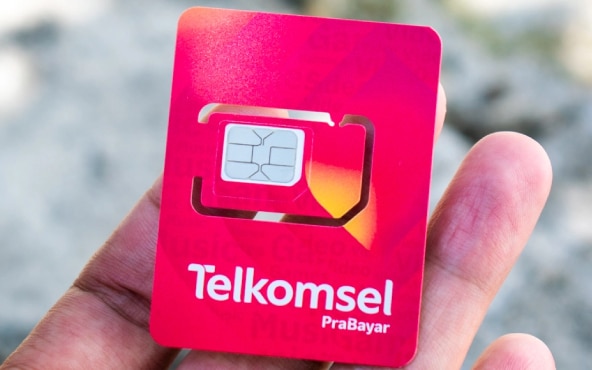Visiting Bali offers not only beautiful beaches, rich cultural experiences, and delicious food but also vibrant markets and shops where bargaining is a common practice. Knowing how to negotiate effectively can enhance your shopping experience and help you get the best deals. This article provides practical negotiation tips for tourists in Bali, covering market etiquette, strategies, and cultural considerations.
Introduction
Bali’s markets are a treasure trove of local crafts, souvenirs, clothing, and unique items. Bargaining is an expected and enjoyable part of the shopping experience in these markets. However, for tourists unfamiliar with the practice, it can be intimidating. This guide will equip you with essential negotiation skills to ensure you have a fun and successful shopping experience.
Understanding the Cultural Context
Before diving into negotiation techniques, it’s important to understand the cultural context of bargaining in Bali.
Market Etiquette
- Politeness: Always approach negotiations with a friendly and polite attitude. A smile and a positive demeanor can go a long way.
- Respect: Show respect for the sellers and their goods. Avoid being aggressive or confrontational.
- Patience: Negotiations can take time. Be patient and enjoy the process.
Cultural Sensitivity
- Understand Local Customs: Be aware of local customs and traditions. For example, it is considered polite to greet the seller with a friendly “Halo” (Hello) or “Selamat pagi” (Good morning).
- Build Rapport: Establishing a good rapport with the seller can lead to better deals. Engage in small talk and show genuine interest in their products.
Preparation Before Negotiation
Preparation is key to successful bargaining. Here are some tips to help you prepare:
Research Prices
- Compare Prices: Visit several stalls to get an idea of the price range for similar items. This will give you a baseline for your negotiations.
- Ask Locals: If you have local friends or contacts, ask them about typical prices to avoid being overcharged.
Set a Budget
- Know Your Limit: Decide in advance how much you are willing to spend on a particular item. This will help you stay focused during negotiations.
- Bring Cash: Having cash on hand is essential as many market vendors do not accept credit cards. Smaller bills are particularly useful for negotiations.
Negotiation Strategies
Armed with your research and budget, it’s time to start negotiating. Here are some effective strategies:
Start Low
- Initial Offer: Begin with an offer that is lower than what you are willing to pay, but not so low that it offends the seller. This gives you room to negotiate up.
- Be Reasonable: Make sure your offer is within a reasonable range of the item’s value to show that you are serious about buying.
Be Prepared to Walk Away
- Show Disinterest: If the price remains too high, show that you are willing to walk away. Often, this will prompt the seller to lower the price.
- Actual Walkaway: If the seller does not budge, start walking away. This can sometimes lead to a last-minute offer closer to your desired price.
Bundle Purchases
- Buy in Bulk: If you are interested in multiple items, ask for a discount on the total price. Sellers are often more willing to negotiate for a larger sale.
- Package Deals: Suggest a bundled price for a set of items to get a better overall deal.
Use Silence as a Tool
- Pause: After making an offer, remain silent and wait for the seller to respond. Silence can create pressure and encourage the seller to meet your price.
- Consideration: Show that you are considering their counteroffer seriously, which can lead to further concessions.
Show Flexibility
- Negotiable Items: Be willing to negotiate on aspects other than price, such as delivery options or additional items included in the deal.
- Mutual Agreement: Aim for a price that feels fair to both you and the seller, fostering a positive interaction and mutual satisfaction.
Common Phrases for Negotiation
Using some basic Bahasa Indonesia phrases can enhance your negotiation process and show respect for the local culture. Here are a few to help you get started:
- How much is this?: Berapa harganya ini?
- Can you give me a discount?: Bisa kasih diskon?
- That’s too expensive: Terlalu mahal
- Can you lower the price?: Bisa kurang?
- I’ll buy it if you can lower the price to [amount]: Saya akan beli jika harganya bisa kurang menjadi [amount]
- Can I get a better price if I buy more?: Bisa dapat harga lebih murah jika saya beli lebih banyak?
- Okay, I’ll take it: Baiklah, saya ambil
- Thank you: Terima kasih
Final Tips
Here are some additional tips to keep in mind to ensure a smooth and enjoyable bargaining experience:
- Keep It Light: Remember that bargaining is meant to be a friendly and enjoyable interaction. Keep the mood light and positive.
- Stay Firm but Fair: Be firm in your negotiations but also fair. Recognize the value of the craftsmanship and the effort of the seller.
- Enjoy the Experience: Embrace the process as part of your cultural experience in Bali. It’s an opportunity to connect with locals and learn more about their way of life.
Conclusion
Bargaining in Bali’s markets is not only a way to get the best deals but also a unique cultural experience. By understanding local customs, preparing effectively, and employing smart negotiation strategies, you can enjoy a rewarding and respectful shopping experience. Whether you’re buying souvenirs, clothing, or local crafts, these tips will help you navigate the vibrant markets of Bali with confidence. Selamat berbelanja (Happy shopping)!





